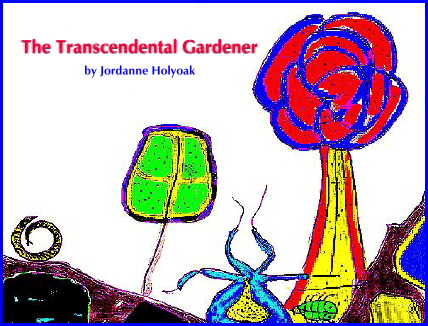
|
When my grandfather, an Apache medicine man, plants a seed, he sings a prayer to the Great Spirit. He then walks away from the seed, his duty done. He has no inclination toward watering and tending the possible sprout or toward watching it blossom and bear fruit. If Tankashela wants the seed to become a fruit-bearing plant, Tankashela will see to it. Grandfather is an Apache, and Apaches are warriors, not farmers.
When my friend Ted Manygoats, a member of the Delaware tribe, plants a seed, he sings a prayer to the Great Spirit. He returns every day to water and tend the young sprout, and to care for it as it grows to bear fruit. Tankashela must want the seed to become a fruit-bearing plant because He has stored within the seed the ability to do just that, AND he has sent Ted Manygoats to help. Fortunately Ted is a farmer, not a warrior. Few of the ancient Native American tribes were farmers. Most were hunters and gatherers, living upon the bounty of the land as nature provided it. Often they moved, following the elk and buffalo herds, picking berries along the way. Some tribes were warriors, living off the bounty which other tribes had gathered by looting the tribes which they warred against. Even for the tribes which planted gardens, (rarely was there any plot big enough to call a farm), gardening was not the science that it is today. Ted's great-grandmother, Sara Rainwater, did not have the array of fertilizers, organic pesticides, and soil conditioners which is available to Ted today. Sara depended upon what was immediately available. If it rained, she gave thanks. If it did not rain, she prayed for it. If she had it, she planted fish bones or compost in the hole with her squash seeds. If she did not, she prayed for the soil to bear fruit anyway. Much was left up to Tankashela. Modern gardeners are not too different from Ted and Sara. In fact, they fall into two groups right along the same lines. There are those that will do or use anything to get their plants to grow, and others who plant and do occasional tending, but believe that most of the work is up to nature. But there is an ever-growing, third group which I call the transcendental gardeners. These people are driven. They garden because it provides for them something beyond planting, tending and harvesting. It provides for them a vehicle toward serenity. You can identify one of these gardeners because he will pore over the seed catalogues while the snow is knee-deep outside. He will plan his garden while the rest of the country is convinced that winter will never end. At planting, he will come in weary and sunburned marveling that it is dark when it was morning just a few minutes ago. But the giveaway is the look on his face as he takes an evening walk in his garden. He will look at each individual plant with the same tender expression he wears when he tucks his children into bed. You don't talk to a transcendental gardener when he is gardening, because he won't hear you. His nostrils are full of the scent of warm soil. His skin is flush with sun. His head is full of the colors and fragrances of flowers which are still promises tucked into sprouting seeds. And if you get any conversation from him it will be full of words like "astilbe" and "coreopsis." Unlike the Delaware who was intimate with Nature and the turning of the seasons, the modern gardener has only his gardening to put him in touch with those forces. Most of his time he spends in front of a screen, striking keys and reading printouts. Gardening is how he becomes a part of that ever-turning cycle of dormancy and renewal. And there is something within him that needs it. He cannot belong to an ancient indigenous tribe and wear buckskin and look for berries each day, but lord, there is a voice inside him that cries for it. He cannot name the feeling, but on days when he is on his knees, elbow-deep in soil, surrounded by green seedlings under a misty rain, the voice inside him rejoices. And for those few moments, he gets to be a part of the engine which turns the universe. |
 Return to Black Raven
Return to Black Raven